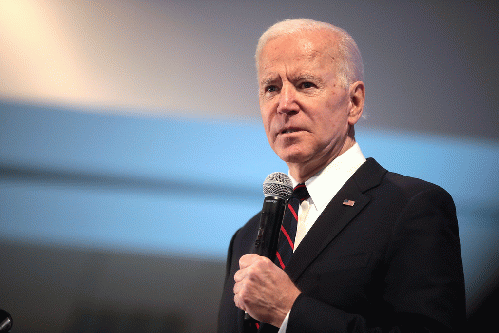Opening a discussion on Medicare, I should begin by saying that I rarely disagree with Bernie Sanders on reforming the archaic American health-care system. There are too many good reasons to support Sanders's health-care initiatives.
But over time, I've come to wonder if pre-emptively dismantling the existing for-profit health-care system would be the most productive approach.
Sure, on paper, if you canceled the for-profit system outright and built your national infrastructure around a public system, the transformation would be far faster and more efficient, and the benefits to the country's health and economy would be huge.
The problem is that in the real world, this always gives the for-profit health-care industry and their operatives in Congress an all too effective anti-socialism, anti-communism rhetorical vehicle. Yes, that argument falls apart with any cogent analysis, but it's brutally effective on right-wing media.
That leaves alone the enormous legislative task of dismantling the current system and constructing a new one. An incredibly difficult task for a perfect Congress functioning in a purely objective spirit. For our deeply conflicted, highly polarized, and totally dysfunctional Congress, it would likely do more harm than good.
Enter the perfect solution: Medicare. Medicare is an up-and-running, fully functional, decades-old, LBJ-era public health-care system. It works beautifully, and the only reason it isn't the dominant health-care system in America is that federal law restricts its growth by limiting access to people over 65. Lift that restriction and Medicare becomes the dominant health-care system in America in five years. That's all it would take.
The for-profit health-care industry is well aware of what it would mean to have to compete with Medicare on a level playing field. The 65-year-old age restriction on Medicare is preventing open competition, protecting the industry's enormous profits, and literally keeping them in business, albeit artificially. Newly-elected president Joe Biden, as an act of benevolence, proposes lowering the age restriction to 60 years from 65. That would be a kinder, gentler travesty, but a perpetuation of enormous travesty nonetheless.
Upon further examination, Biden's plan to lower the qualifying age for Medicare to 60, while it sounds tepid, it will draw intense fire from the for-profit health-care industry.
NPR in November 2020 published an article labeled "Health News From NPR." Upon closer examination, the piece was the product of Phil Galewitz, writing for Kaiser Health News. The title, Biden Wants to Lower Medicare Eligibility Age to 60, but Hospitals Push Back, might seem a precursor to an objective report, but predictably, having been produced by Kaiser, it's an industry perspective.
The gist is that Biden is being too aggressive, "the hospitals" won't stand for the cuts in revenue, and Congress is too industry-friendly and won't approve it -- the final point being probably true.
But The New York Times points to a potential workaround in a December 2020 piece titled Becerra Supports "Medicare for All," and Could Help States Get There. As the title suggests, the Department of Health and Human Services could work with states to expand Medicare coverage. The counter-argument is that it would increase taxes. The counter to the higher taxes argument is that yes, it would increase taxes but significantly decrease insurance premiums, so that the average American would pay less, far less overall.
The coronavirus pandemic has laid bare the inadequacies of the for-profit health-care system's ability to address the public good, particularly in times of crisis. It was never designed to provide for the public good. It was designed to earn profits for health-care corporations. That it does well.
(Note: You can view every article as one long page if you sign up as an Advocate Member, or higher).






